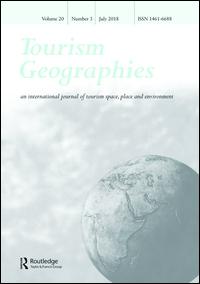Emplacing non-human voices in tourism research: the role of dissensus as a qualitative method
公開日 2020.02.13

A research paper written by CTR researcher, Dr. Abhik Chakraborty was published in Tourism Geographies. A part of this research was supported by CTR Research Project Support Fund.
Title
Emplacing non-human voices in tourism research: the role of dissensus as a qualitative method
Authors
Abhik Chakraborty, Center for Tourism Research, Wakayama University, Wakayama, Japan
Source
Tourism Geographies, 2020
DOI: 10.1080/14616688.2020.1713875
https://www.tandfonline.com/doi/full/10.1080/14616688.2020.1713875
*Indexed in Scopus
Journal details: https://www.scopus.com/sourceid/16544
Abstract
Although tourism shares a fundamentally important relationship with the natural environment, non-human voices are easily lost in conventional methods used in tourism research that favor consensus and clear patterns. Even with qualitative methods, researchers tend to seek consensus among peers and often focus disproportionately on the social dynamics of tourism, leading to entrenched anthropocentrism and limited efficacy in representing the condition of a multitude of non-human lifeforms, physical formations, and processes. The portrayal of the tourism environment as a passive backdrop for human activities is particularly insufficient for addressing problems at eco or natural tourism destinations where key roles of fellow species and biophysical formations make tourism a more-than-human phenomenon. This situation calls for engaging with non-human others in the tourism landscape through novel methods that are creative, fluid, and to some extent free of theoretical or paradigmatic moorings. Informed by a dissensus on the centrality of the human experience for meaning-making, such engagements are disruptive of the dominant anthropocentric tendencies in qualitative research but are nevertheless necessary for addressing wicked problems, the complex nature of which preclude anthropocentric solutions. As an alternative, fluid and speculative inquiries into the inherent plurality and complexity of non-human others have the capacity to grow into an organic toolkit to inform tourism research in a time of pervasive change.
Key words
Qualitative research, anthropocentrism, dissensus method, nonlinearity, complexity and plurality, fluid methods

